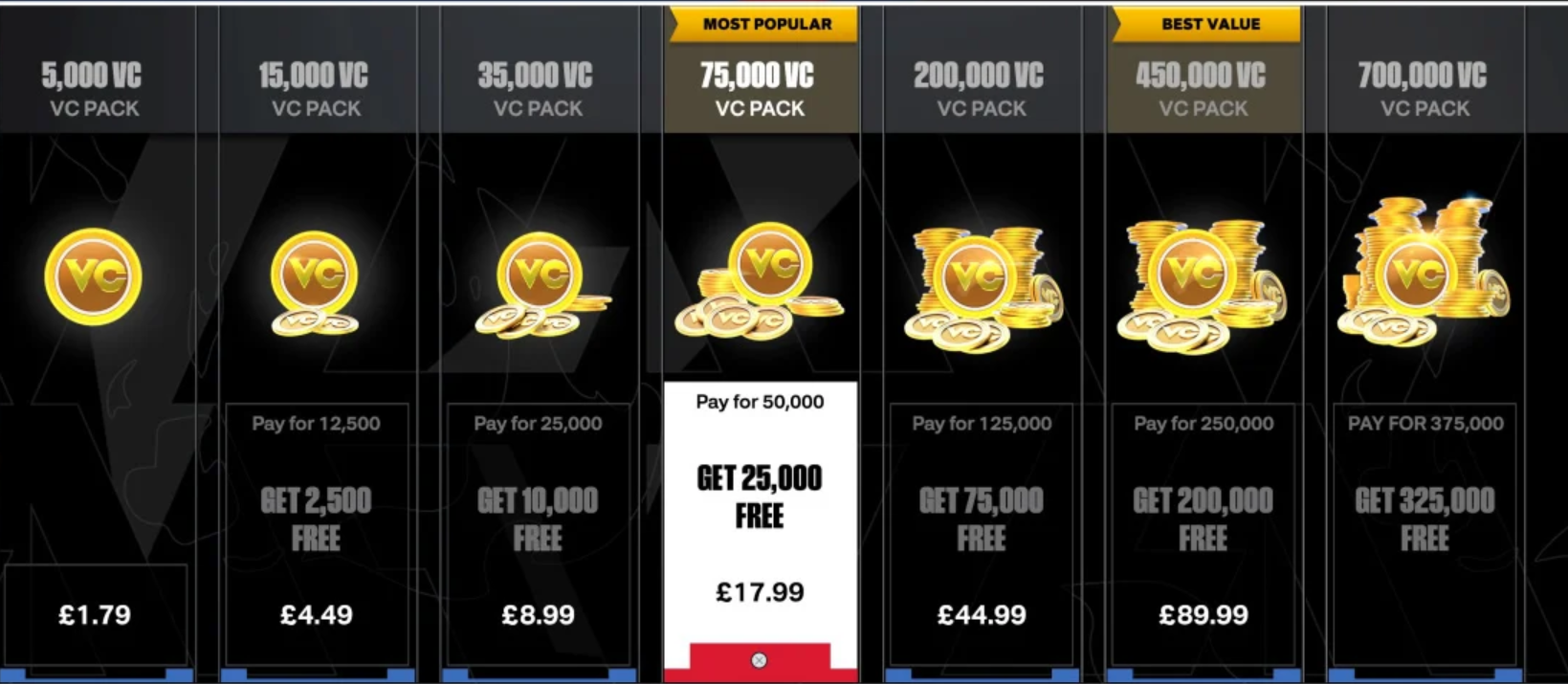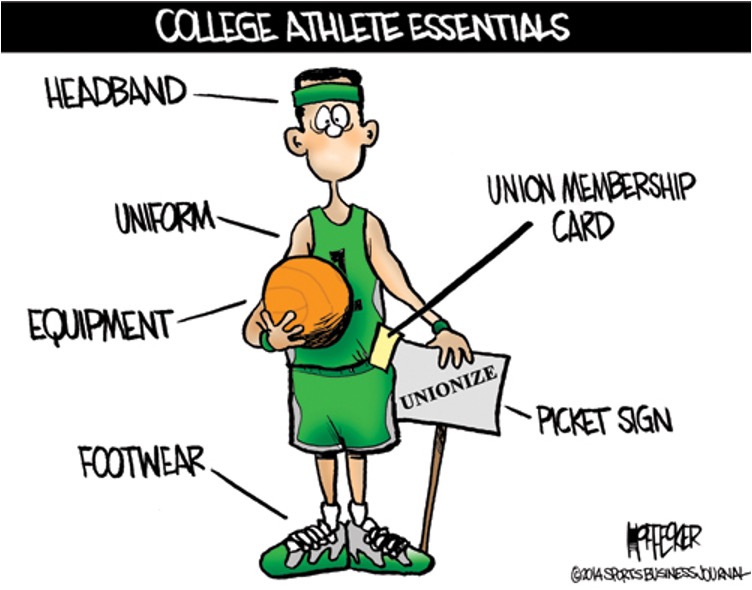By: Angel Gutierrez
In-Game Currency
As a recent study shows, kids are mostly requesting videogame-related presents for the holidays.[1] While most would think this means physical games, kids request in-game currencies more than physical games, placing them amongst the most requested items during the holidays.[2] In-game currencies are a form of virtual currency in videogames that allows players to purchase either in-game cosmetics or in-game upgrades using real money.[3] At the forefront of in-game currencies is 2K’s annual sports franchise, which allows players to upgrade the abilities of their in-game characters through virtual currency.[4] Recently, 2K and its parent company Take-Two Interactive find themselves on the receiving end of a controversial lawsuit over the distribution and ownership of in-game currencies.
Can you own physical currency? Of course. Can you own cryptocurrency? Of course. Are you entitled to virtual currency you purchased with physical money? This is the underlying question being posed to the U.S. District Court in the Northern District of California.[5]
JA v. 2K Games, et. al.
On November 17, 2023, a 2K consumer and their mother filed a class action complaint for damages against 2K Games and Take-Two Interactive.[6] The heart of the class action complaint alleges conversion, civil theft, and unfair business practices as a result of Defendants’ procedures for closing down old games and removing any and all virtual currencies (VC).[7] This means any VC players have earned or purchased disappear completely with no compensation or the ability to transfer to newer titles. For example, the complaint asserts, “2K Games retired NBA 2K21 on December 31, 2022, just over two years after the game’s release . . .. In tandem with retiring an older version of a game, 2K Games also needlessly removes any VC remaining.”[8] The Plaintiff in the class action seek to enjoin Defendants from this “misconduct” and “reclaim the value” of the virtual currency.[9]
2K and Take-Two’s rebuttal is straightforward: “VC is not plaintiff’s property.”[10] While the members of the class action claim rights over the virtual currencies as a result of paying for them, Defendants take the position that virtual currencies are “fictions created by game publishers.”[11] Synonymous to the games themselves, theses creations by the game publishers are thus subject to the same terms of service and user agreements.[12]
Seeking to close the claim, Defendants filed a motion to dismiss the class action on February 2, 2024.[13] Under the motion, Defendants pointed to clauses in their End User License Agreements (EULA) discussing the virtual currencies.[14] Signed by players whenever they play games created by Defendants, the agreements, using standard EULA wording, state players only have a “limited right and license” to virtual currency.[15] Under these agreements, Take-Two and 2K argue they can “suspend” or “eliminate [the virtual currency] . . . as [they] see fit.”[16]
While the court originally set a hearing on the motion to dismiss for March, both parties submitted a stipulated proposed order to extend briefing deadlines.[17] Plaintiff now has until April 4, 2024 to submit an opposition to the motion and Defendants have until May 6, 2024 to file their replies.[18] This continuation provides each party more time to flesh out their arguments regarding the motion to dismiss before the court reviews the briefings and holds its hearing.
At the time of this post, it seems both parties are still holding firm to their beliefs. Plaintiff claims Defendants’ actions are “unfair, illegal and greedy,” and call for Defendants to release refunds to players for their unspent funds that disappeared after game servers have shutdown.[19] Defendants assert these claims are invalid, as the currency is not the Plaintiff’s property and the companies are free to suspend all uses as they see fit.[20]
As gaming and in-game content evolves, people are attempting to draw the line between what players do and do not own. While players purchase virtual currencies with real currencies, VCs are limited to use within the games themselves. JA v. 2K Games, et. al and the upcoming hearing on the motion to dismiss will provide insight into whether players have a valid claim to ownership of those virtual currencies and whether they should be compensated for the disappearance of those currencies.
[1] ESA, U.S. Children Say They Want Videogames More Than Anything Else This Holiday Season (Nov. 20, 2023), https://www.theesa.com/news/u-s-children-say-they-want-video-games-more-than-anything-else-this-holiday-season/.
[2] See id.; see also Sophie McEvoy, US Kids Want Games Subscriptions and Virtual Currency More Than Games This Christmas, Games Industry.biz (Nov. 27, 2023), https://www.gamesindustry.biz/us-kids-want-games-subscriptions-and-virtual-currency-more-than-games-this-christmas/.
[3] Liv Ngan, Take-Two and 2K Sued Over In-Game Currency in Yearly Sports Series, Eurogamer (Nov. 28, 2023), https://www.eurogamer.net/take-two-and-2k-sued-over-in-game-currency-in-yearly-sports-series/.
[4] See id.
[5] See id.
[6] Class Action Complaint at 1, J.A. v. 2K Games, Inc., 2023 WL 3:23CV05961 (N. D. Cal. 2023).
[7] Id. at 7.
[8] Id.
[9] Id.
[10] Rachael Davis, Videogame Company Denies Lawsuit claiming it Steals Virtual Currency, Readwrite, https://readwrite.com/video-game-company-denies-lawsuit-claiming-it-steals-virtual-currency/ (last updated Feb. 8, 2024).
[11] Id.
[12] Id.
[13] See id.
[14] Id.
[15] Id.
[16] Davis, supra note 10.
[17] JA v. 2K Games, Inc. et al, https://1.next.westlaw.com/Document/I09A87A0B85D811EE9223E1EBCDF7D4BA/View/FullText.html?originationContext=laDocketMotions&transitionType=Document&contextData=(sc.History*oc.Default)&docSource=1e46e488a6e941bfb01089972465b48f&rulebookMode=false&ppcid=80d58a39bcfa4f8585aa15d9b18125af/ (last visited Mar. 7, 2024).
[18] Id.
[19] Davis, supra note 10.
[20] Id.




